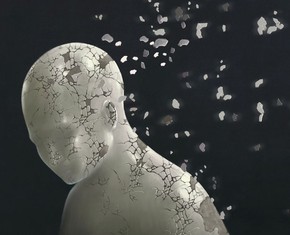The views expressed in our content reflect individual perspectives and do not represent the authoritative views of the Baha'i Faith.
“Why do we believe certain things?” I asked my Facebook friend Ari. Such as, I said with a smiley emoji, “why you believe (in spite of a wealth of evidence) that there is no God and no room for faith in a rational view of the Universe?”
Our conversation had turned to how human beings acquire knowledge and faith, which is the subject of mathematician William S. Hatcher’s insightful paper, “The Science of Religion.” I argued that the very act of doing science — that is, acquiring knowledge about the Universe we share — requires faith.
RELATED: Can Science Prove that a Creator Exists?
At the most basic level, it requires faith that the Universe can be known, that experiments will yield results that can be used to frame reality, and that observations, when collected, compiled, and analyzed, will actually yield usable knowledge.
Dr. Hatcher said something about the role of faith in a rational view of reality that seems obvious in retrospect. In discussing Einstein’s proposal that e=mc² he commented:
… scientific knowledge is relative. Scientific inquiry brings into play a host of human faculties such as reason, intuition, and experience, and these on different levels of profundity and objectivity. One cannot, however, explain in any simple manner the way in which these faculties interact to produce a given statement of science. The statements of science are arrived at by a process of repeated application of these human faculties, and by many different human beings. Years of experimentation (organized experience), theorizing (conscious reasoning and intuition), and discussion lie behind the one statement “e=mc²”.
It would be a mistake to say that we hold such a statement to be true because of reason, or because of intuition, or because of experience. In the final analysis, we hold something as true only because of everything else which we accept as true … No statement can be held absolutely to be true, for no statement is independent of other statements and facts which may come to our attention at some future date.
Hatcher goes on to note that, again, obviously:
Faith is the process of organizing our emotional life around our assumptions, and so the quality of faith is directly proportional to the validity of the assumptions (again, conscious or unconscious) on which faith is based. We can see, now, why the Baha’i Faith enjoins a scientific outlook on life as being essential. The scientific approach does not guarantee us absolute knowledge, this being beyond the possibilities of man in any case, but it does guarantee that our concepts will be as functional and as close to reality as possible.
So, the quality of our knowledge of and faith in a person, process, or thing will depend upon the quality of the assumptions we’ve made about it. This clearly requires the use of reason, which the Baha’i writings refer to as “the first faculty of man.” When we make reasonable assumptions, we attempt to answer these questions:
- How well do we connect the dots as presented?
- Are there dots we overlook because we don’t understand their meaning or significance?
- Are there sources of information we refuse to draw on because they don’t fit our world view?
By way of example: My favorite magazine is the Skeptical Inquirer. I’ve corresponded several times with the late editor over the years because we had a common friend — the Baha’i artist Mark Tobey.
One of the SI contributors, Susan Blackmore, once wrote: “I’m not allowed to have psychic experiences, I’m a skeptic.” (Ms. Blackmore unknowingly contributed to one of my science fiction novelettes, “Content with the Mysterious”, which appeared in Analog science fiction magazine in 1998.) Another of my correspondents on an atheist website said unequivocally that we should simply discard any idea that came from a religious source without further thought.
These two proponents of logic and reason took an unscientific, irrational stand, limiting their knowledge base and what they were willing to investigate and possibly believe simply because of their preconceived assumptions about how the Universe works. Both spoke about science as if it were a belief system.
Science is not a belief system.
Science is a process that one can and should make use of in learning how the Universe works, regardless of the source of the knowledge, and regardless of whether or not one accepts the existence of a Creator. Baha’is, no matter where they hail from or how much or little formal education they have, are expected to at least try to understand how the Universe works, how human beings work, how to acquire important knowledge.
A foundational tenet of the Baha’i Faith is the harmony of science and religion. In a public talk on 25 April, 1912 in Washington DC, Abdu’l-Baha said that:
The third teaching or principle of Baha’u’llah is that religion and science are in complete agreement. Every religion which is not in accordance with established science is superstition. Religion must be reasonable. If it does not square with reason, it is superstition and without foundation. … God has endowed man with reason that he may perceive what is true. If we insist that such and such a subject is not to be reasoned out and tested according to the established logical modes of the intellect, what is the use of the reason which God has given man?
In another talk given in Cambridge, Massachusetts, the following month, Abdu’l-Baha stated: “Science is an effulgence of the Sun of Reality, the power of investigating and discovering the verities of the universe, the means by which man finds a pathway to God.”
RELATED: Can Science Unravel the Power of Prayer and Meditation?
This is echoed in the writings of William Thomson, 1st Baron Kelvin, the scientist who gave us the Kelvin scale by which we measure absolute temperatures. Kelvin wrote:
Do not be afraid of being free thinkers. If you think strongly enough you will be forced by science to the belief in God, which is the foundation of all Religion. You will find science not antagonistic, but helpful to Religion.
When someone limits the possibilities of what she is “allowed” to experience, or closes off a door to principles that can literally save humanity from itself, can we say that limitation is reasonable or rational? I understand, firsthand, being thrust into experiences I did not want to have because they collided with my sense of reality. But I also understand that simply not allowing myself to experience that collision would be to … well, dodge the issue.
One thing of which I am certain is that I would not want to live in a world in which Buddha had never said in the Dhammapada, “Hatred does not cease by hatred; hatred ceases by love. This is an eternal commandment.”
Or in a world where Baha’u’llah had never told us that:
The best beloved of all things in My sight is Justice; turn not away therefrom if thou desirest Me, and neglect it not that I may confide in thee. By its aid thou shalt see with thine own eyes and not through the eyes of others, and shalt know of thine own knowledge and not through the knowledge of thy neighbor. Ponder this in thy heart; how it behooveth thee to be. Verily justice is My gift to thee and the sign of My loving-kindness. Set it then before thine eyes.
















Comments
Sign in or create an account
Continue with Googleor